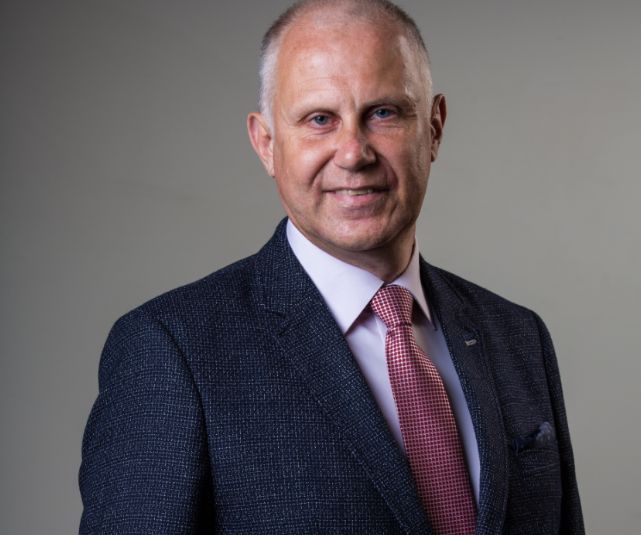Europe is changing its sanctions strategy against Russia

On Thursday, the EU published a list of persons subject to sanctions for the poisoning of Russian opposition leader Alexei Navalny with the chemical weapon of war "Novichok" on August 20 this year. The list includes three high-ranking officials of the Russian presidential administration - Kiriyenko, Yarin and Menyailo, the director of the Federal Security Service Bortnikov and two deputy ministers of defense - Popov and Krivoruchko.
The main question that political observers are trying to answer is whether these sanctions are adequate to the seriousness of what has been done. After laboratories in three countries - Germany, Sweden and France - recognized Navalny's poisoning with Novichok and a similar conclusion was issued on 6 October by the Organization for the Prohibition of Chemical Weapons (OPCW), Russia was asked how the banned poison entered Navalny's body. Russia has not even tried to meaningfully answer this question. Moreover, investigation in the matter has not even been initiated, thus suggesting that Russia's top management is to blame for the poisoning.
Russia's reaction to the poisoning of Navalny was so demonstratively shameless that, with the blessing of French President Emmanuel Macron, Le Monde leaked a printout of his and Russian President Vladimir Putin's telephone conversation, in which he responded to Macron's call to investigate, as if mocking, that perhaps Navalny poisoned himself. The sharp statements by Macron and German Chancellor Angela Merkel about the poisoning of Navalny, as well as the interviews with Navalny himself on Spiegel magazine and Bild newspaper, where he accused Putin of the deed, have led many to believe that Western sanctions will really hurt Russia this time around.
However, the closer the publication of these sanctions came, the clearer it became that this time, too, the West will not allow anything more than a finger-wagging, and the sanctions will be purely symbolic. It is important to note here why sanctions should theoretically have been severe. Chemical weapons are considered inhumanly torturous, so they have been highly rejected since World War I. During World War II, although all parties to the war had large stockpiles of chemical weapons, they were not deployed, regardless of the situation on the front.
Russia announced in the 1990s that it had completely destroyed its USSR-era chemical weapons arsenal, but the Skripal poisoning case made the world question the truthfulness of these statements. Now this case of Navalny, when the OPCW acknowledged that Navalny was poisoned with a modified, hitherto unknown form of Novichok, shows that Russia has not only not eliminated dangerous chemical weapons, but is continuing to develop and improve them. The response to such serious and devastating violations of international norms had to be as harsh as possible.
However, the sanctions now announced can in no way be considered severe. The sensitive issue of Nord Stream 2 has been left out of sanctions, suggesting that the West has changed the strategic meaning of sanctions. The effectiveness of sanctions and the expected outcome can be discussed. One can judge the West's moral weakness and readiness for joint, consolidated action to curb Russian policy, but the Navalny case has clearly shown that de facto West can do nothing against Putin. He can do what he wants, how he wants and where he wants (maybe except in the US), and he won't have any consequences for it.
Consequently, the former idea of influencing and changing the policies of the Putin regime has been abandoned. The new Western strategy is simply to survive this, because in the end Putin is not eternal, and sooner or later he will leave. But in the meantime, you have to survive. By imposing sanctions on six high-ranking (but not the highest) Russian officials, the West conveys they do not like Russia's actions, but no one is particularly interested in confronting Russia. Let's try to live together without disturbing each other too much. Let Russia deal with the problems it creates with its policies. Such conditional disregard for Russia, according to some analysts (Vladislav Inozemtsev), is the heaviest possible sanction against Russia, as Russia's own course is dragging it into ever deeper degradation. Therefore, it is better not to interfere or interfere in Russia's self-destructive course.
How should we react to the events in Russia and the EU's sanctions policy? I have long been repeating that the most far-sighted economic policy on this issue was developed by Ventspils municipality back in 2002. The guidelines of this policy were the industrialization of the city and the diversification of the economy, taking into account that the opening of new ports in Russia will reduce cargo flows to/from Russia.
Therefore, the news that from October 1, Russia has completely stopped its coal exports through the Baltic ports, shouldn’t have surprises anyone. The fact that the Freeport of Riga has strongly overcalculated the purchase of coal terminals on Krievu Island is a testament to the lack of strategic thinking. The idea that the main motive of this deal was just basic greed will be rejected in good faith as unworthy of Latvian officials.